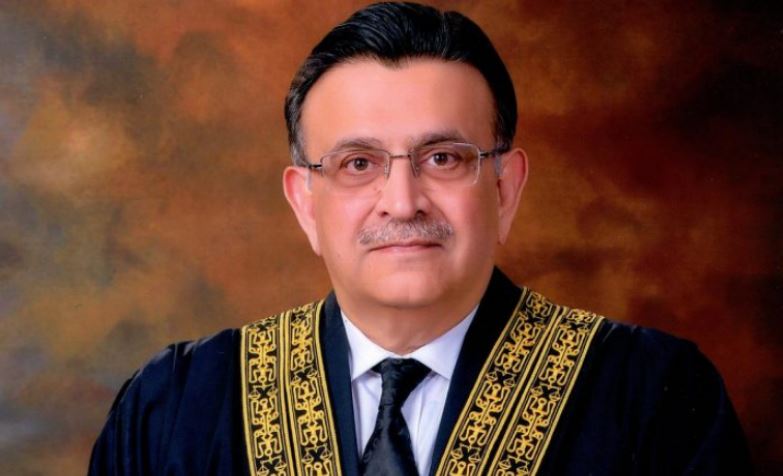Chief Justice of Pakistan Umar Ata Bandial on Tuesday warned the executive against interfering with the Supreme Court’s affairs.
Coming down hard on the Attorney General for Pakistan Mansoor Uman Awan, the top judge asked: “How can you say that two judges, including the chief justice, are involved in the matter?”
The CJP’s remarks came during the apex court’s hearing on a set of petitions filed against the constitution of a high-powered judicial commission tasked to inquire into the various audio leaks of members of the judiciary.
The SC bench, which also comprises Justice Ijaz ul Ahsan, Justice Munib Akhtar, Justice Syed Hasan Azhar Rizvi, and Justice Shahid Waheed, has taken up four separate petitions filed by Supreme Court Bar Association President Abid Shahid Zuberi, SCBA Secretary Muqtedir Akhtar Shabbir, Pakistan Tehreek-e-Insaf Chairman Imran Khan and Advocate Riaz Hanif Rahi.
All petitions requested the apex court to declare the commission’s formation illegal.
It is pertinent to note that during the hearing of the petitions on May 28, the same bench suspended the notification that formed the bench and stayed the commission’s working.
Ahead of the hearing Tuesday, Zuberi, submitted to the bench a number of orders of different high courts, requesting that these documents be considered for “proper adjudication” of the present case.
These orders included previous rulings from the apex court itself, the Islamabad High Court, and the Lahore High Court.
At the outset of the hearing, AGP Usman opened his arguments with discussions on the “conflict of interest” of judges hearing the petition.
The CJP, taking issue with the “allegation” said that the apex court is a constitutional office that has its own powers.
“A judge cannot be made a party to a contempt petition,” he said, adding that a chief justice cannot be asked to leave a bench upon allegations.
“The powers of the chief justice or judge cannot be reduced as per requirement,” he said.
When the AGP said that the government had raised objections against the formation of the bench hearing the appeals, the top judge asked: “How can there be a discussion on the assumption that two judges, including the chief justice, had personal benefits in the case?”
He warned the executive to refrain from interfering in the powers of the court. “We were not even consulted before the commission was formed,” he said.
He then told the AGP to first prove that his petition could be adjudicated and said: “Objections cannot be raised against judges on mere allegations.”









